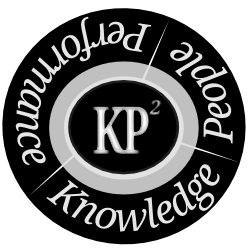This year it’ll be the 5th time I’m attending the Academy of Management Conference. I have good memories of the doctoral consortia and workshops I attended in the early years of my PhD. Here are two of my blog posts from back then: Reflections on the AoM in 2011 and Reflections on the AoM in 2012. Over the years, the conference has become a standard summer event for me. This year, I teamed up with my colleague Madeleine Rauch (European University Viadrina/German Graduate School of Management and Law) to organize a symposium entitled ‘Dynamic Capabilities: Bridging Diverging Conversations’. We have brought together an interesting set of papers from researchers surrounding our research group on dynamic capabilities. We’re delighted to have Gianmario Verona (Bocconi) and Oliver Schilke (University of Arizona) as facilitators for the discussion. The symposium is sponsored by the Business Policy and Strategy Division, and the Technology and Innovation Management Division. Our session is scheduled for Monday, August 10, 2015, from 8:00-9:30am at the Vancouver Convention Centre in Room 205. If you are a strategy or innovation scholar interested in dynamic capabilities, we hope to meet you there. You can find the abstract below.
The concept of dynamic capabilities—an organization’s capacity to adapt to changes in the environment (Eisenhardt & Martin, 2000; Teece, Pisano, & Shuen, 1997)—has become a dominant topic in management research (Helfat et al., 2007). Publications are appearing at a rate hardly precedented in the social sciences (Di Stefano, Peteraf, & Verona, 2014). Accordingly, the large body of research has prompted valuable and unique insights into dynamic capabilities (Vogel & Guettel, 2013), yet the understandings of the concept still diverge significantly (Di Stefano, Peteraf, & Verona 2010; 2014). Peteraf, Di Stefano, & Verona (2013) reveal that the field seems to be split into two camps that hardly engage in a joint scholarly discourse. As a consequence, Di Stefano et al. (2014), call for the “bridging of diverging conversations” in order to move the field forward. They propose a model that features five components around which dialogue seems required: (1) the nature of the construct, (2) the agent, (3) the action, (4) the object of the action, and (5) the aim or purpose of the construct. The aim of this symposium is to stimulate the discourse in the DC community by presenting four papers that explicitly connect to the model proposed by Di Stefano et al. (2014). By scrutinizing the relevance of managers, routines, and power, we address the (1) nature of the construct, (2) the agent, (3) the action, and (4) the object, both from an empirical and a conceptual point of view. Ultimately, Gianmario Verona and Oliver Schilke, two acknowledged scholars in the field of strategic management and specialists in the area of dynamic capabilities, will facilitate and discuss the patterns emerging from the set of papers and engage the audience and presenters in a dialogue about the ideas and findings presented.

